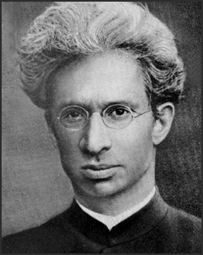Sarvapalli Radhakrishnan was the President of India from 1962-1967. His birthday (September 5th) is celebrated as Teacher’s Day in India. As a student in high-school, I vividly remember looking forward to Teacher’s Day. Selected students would be invited to play the roles of teachers for a day. We would get a taste of what teachers have to go through on a daily basis to impart education to students.
Ethics for students
Teachers are under a lot of pressure to do more, be more, be always at their best, set the best example and so on. Radhakrishnan was a great educator, philosopher and of course, a great President. He believed (and I agree) that students need to have certain ethics and virtues in ordered to be taught well by their teachers. One of his texts describes the role of ethics for students.
“The student should not be negligent of truth, virtue, welfare, prosperity, study and teaching. He should only perform those actions which are irreproachable. In case of doubt concerning any act of conduct, the student should follow the practice of those who are competent to judge, those who are devoted to ethics and not harsh lovers of virtue”.
We are all students in some way, in some areas of our lives, at different times in our lives. It could be in the area of learning a new skill or language, or maybe even learning some spiritual truths. We can all be served well by being mindful of the ethics mentioned above.
What virtues should a student practice?
The Upanishads state that all of virtue can be summed up in three gunas or character traits ~ Dama (दम) or self-restraint, Daana (दान) or self-sacrifice, and Dayaa (दया) or compassion. These are also referred to as the three injunctions. The three ‘un’-virtues are kaama (काम) or excessive desires, lobha (लोभ) or greed and krodha (क्रोध) or anger. The persistent practice of the three injunctions can free us from the un-virtues of cravings, greed and anger. It is said that when the Buddha encouraged his disciples to abstain from infatuation, greed and resentment, he was emphasizing the practice of these three injunctions.
It is indeed appropriate that one of the most respected educators in Indian history, Sarvapalli Radhakrishnan, would encourage all students to consider good ethics, practice the three injunctions and avoid un-virtues in all areas of their lives. May we, as students, resolve to re-dedicate ourselves to his message.
Link: Sarvapalli Radhakrishnan – Wikipedia
What do you think? Do these ethics and values still hold significance in today’s teacher-student relationship? Or do we need another set of ethics and values? Please tell us in the comments below.

